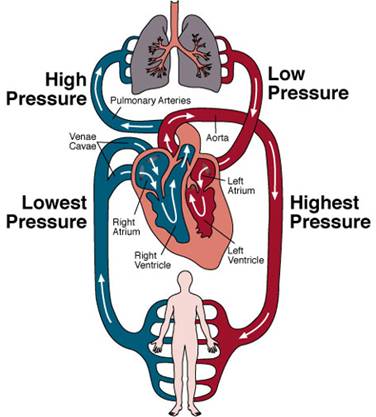 |
| Respiratory System |
I don't remember very much detail about everything that I've studied over the years about the human body, but I do remember focusing on the respiratory system, the circulatory system, and the urinary system. In the respiratory system, I know that the main purpose is to supply blood with oxygen so the blood can deliver it to all parts of the body. This process involves all the organs in association with breathing, but well known organs are the lungs, bronchi, the larynx, and the pharynx. A very vital part of the respiratory system is gas exchange. This is the process when our bodies generate oxygenated blood when we breathe in, and release deoxygenated gas when we breathe out. Of course, this process is not this simple, but as I have said, I don't remember much detail.
 |
| Circulatory System |
Also, in the circulatory system, I know that it is a distribution network to help pass nutrients, such as amino acids and enzymes, hormones, gases, and mainly, blood to and from to and from cells and different parts of the body. In this system the main components are the heart, the veins, and the blood vessels. A part of this system is the cardiovascular system where the blood cells are oxygenated (during gas exchange) and circulated to all different parts of the body.
Finally, the last function of the human body that I can recall is the urinary system. The urinary system, which is also called the excretory system, is an organ system that produces, stores, and releases urine. The main pieces to this apparatus are the kidneys, the ureters, the bladder, and the urethra. The urinary system's goal is to eliminate whatever excess material and waste there may be in one's body. If this process is done correctly, along with the other 2 systems, then the human body is achieving its ultimate goal of maintaining homeostasis.
Urinary System


